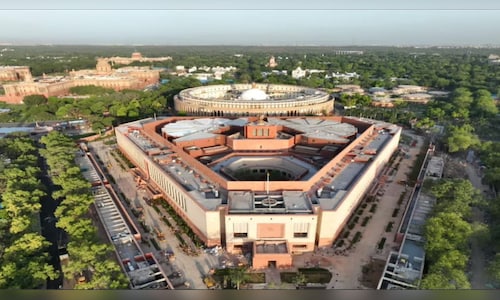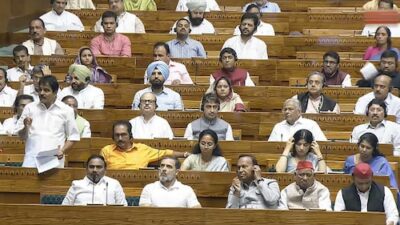The Lok Sabha passed the Bill after an extensive debate lasting over 12 hours on Thursday (March 3).
In the Rajya Sabha, the Bill received 128 votes in favor and 95 against, after the Opposition’s amendments were all dismissed.
In the Lower House, the Bill garnered support from 288 MPs, while 232 voted in opposition.
During a discussion in the Rajya Sabha, Minority Affairs Minister Kiren Rijiju stated the Bill was introduced with numerous amendments based on input from various stakeholders.
“The Waqf Board is a legal entity. All government institutions should maintain secularism,” the minister noted, justifying the inclusion of non-Muslims on the board.
However, he mentioned that the representation of non-Muslims is limited to only four out of 22 members.
Rijiju also accused the Congress and other opposition parties, rather than the BJP, of attempting to instill fear among Muslims regarding the Waqf Bill.
“You (the opposition) are marginalizing Muslims,” he warned.
He remarked that for 60 years, the Congress and its allies governed the country with minimal progress for Muslims, who still face poverty.
“Muslims are in dire circumstances; who is to blame? You (Congress) are. Modi is now guiding the government to assist them,” the minister asserted.
The Waqf (Amendment) Bill aims to strengthen Waqf tribunals, implement a structured selection process, and establish fixed tenures to facilitate effective dispute resolution.
According to the Bill, the mandatory contribution of Waqf institutions to Waqf boards will be reduced from 7% to 5%, while Waqf institutions with earnings exceeding ₹1 lakh will undergo audits by state-appointed auditors.
A centralized portal will be introduced to automate Waqf property management, enhancing efficiency and transparency.
The Bill allows practicing Muslims (for at least five years) to dedicate their property to the Waqf, reinstating pre-2013 regulations.
It requires that women receive their inheritance before any Waqf declarations are made, with specific provisions for widows, divorced women, and orphans.
The Bill also suggests that an officer above the rank of collector should investigate government properties claimed to be Waqf.
Furthermore, it proposes the inclusion of non-Muslim members on both central and state Waqf boards to promote inclusivity.


